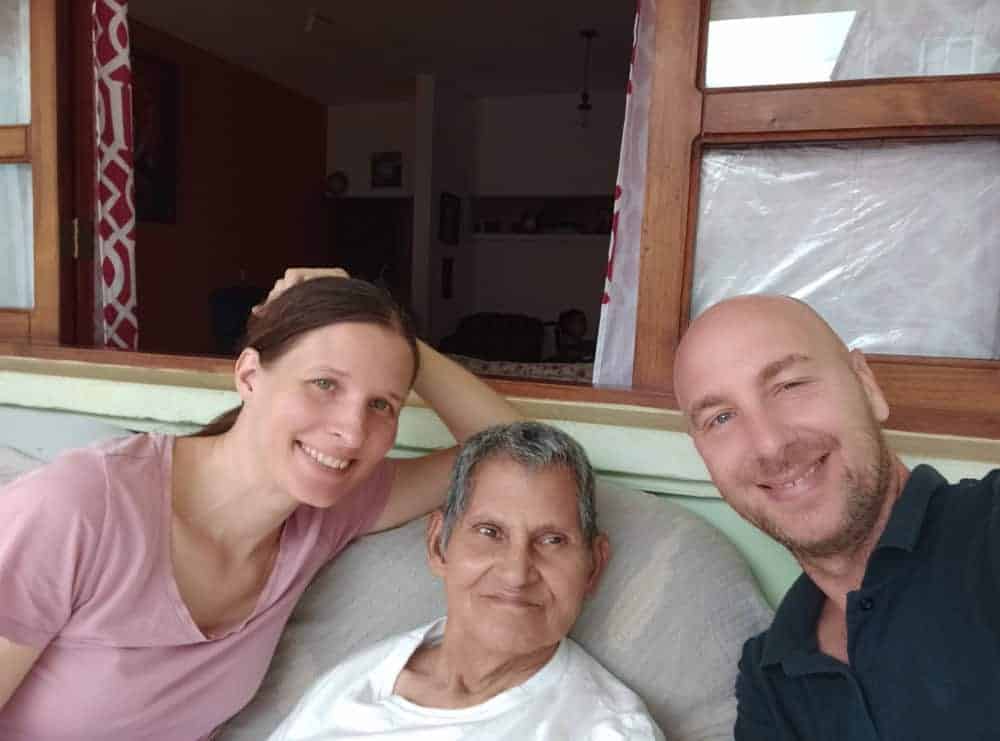Last time I wrote about how we arrived
We found a community
When we entered the Shalom community and met young people living in that community, we knew that we were on the right path.
We explained our intentions to the boy who invited us to the house and to others, and introduced Operando.
In the Shalom community they don’t work directly with the poor, but they offered us another option.
They phoned the sisters from the El Camino community, which is one of many communities inspired by St. Francis of Assisi. The community similar to Toca de Assis, which we visited in Brazil.
The next day, two young sisters arrived in the Shalom community and took us to Villa Rosario that’s on the outskirts of Santa Cruz, where the sisters live and serve.
Fraternitad El Camino (Brotherhood of El Camino)
To spend some time in a community like El Camino (The Way) is something that we could only dream of. It is so close to what we do and so close to what we follow at Operando.

The Fraternidad El Camino community was founded in 2002 in Brazil, bringing together priests, religious people, lay people and young people, all those who want to follow Jesus, especially in the service of the poorest.
Following Jesus
As they say, they follow the poor Jesus who had nowhere to lay his head.
They follow the traveling Jesus, whose home was the way and place to meet the poor.
They follow the praying Jesus, who spent a long time in solitude in conversation with God the Father.
And they follow the compassionate Jesus who shared suffering with the poor and relievered their distress.
The community is growing
Since 2002, the community has been constantly expanding. New houses are being opened (for men and women) all over the world, many young people enter the community.
One of the sisters in the community told us that at the beginning of her novitiate (the first year of her living in the community, when the newcomers are still learning about the order and way of life) there were 60 girls, and after she finished her novitiate, there were already 100 preparing for the novitiate.
Young missionaries
Six missionaries (four Brazilians and two Paraguayans) let us be a part of their lives and work for some time.
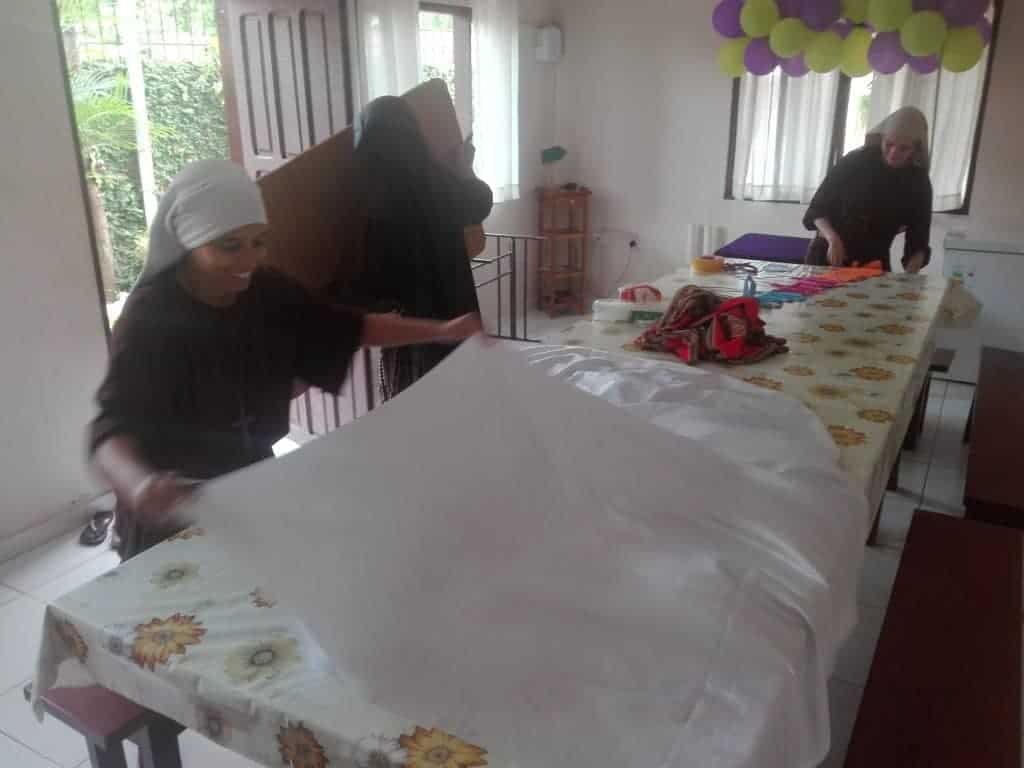
We entered the community of seven young girls (aged between 20 and 32), who had decided early in their lives to go on a path of serving people who have been marginalized, homeless people, drug addicts, prisoners, prostitutes, and all others who have been rejected by the society, judged and pushed away.
In the service to the poor
Following St. Francis’ and, in particular, Jesus’ example, they live in poverty.
Food and other basic necessities that are always shared with the poor are bought exclusively from the donated money. Namely, there are people coming every day and the sisters serve them as they would serve Jesus himself.
Wishes are big
The house where the missionaries live was given by the diocese, and it is situated in a tidy and wealthier neighborhood. However, only a few streets away there is a much poorer area where homeless people and drug addicts stay.
For the sisters, the house is big enough, but it’s still too small for all the planned activities.
They want to open another bigger house where homeless people could spend the night, and a large dining room where the sisters would prepare meals for them on a daily basis.
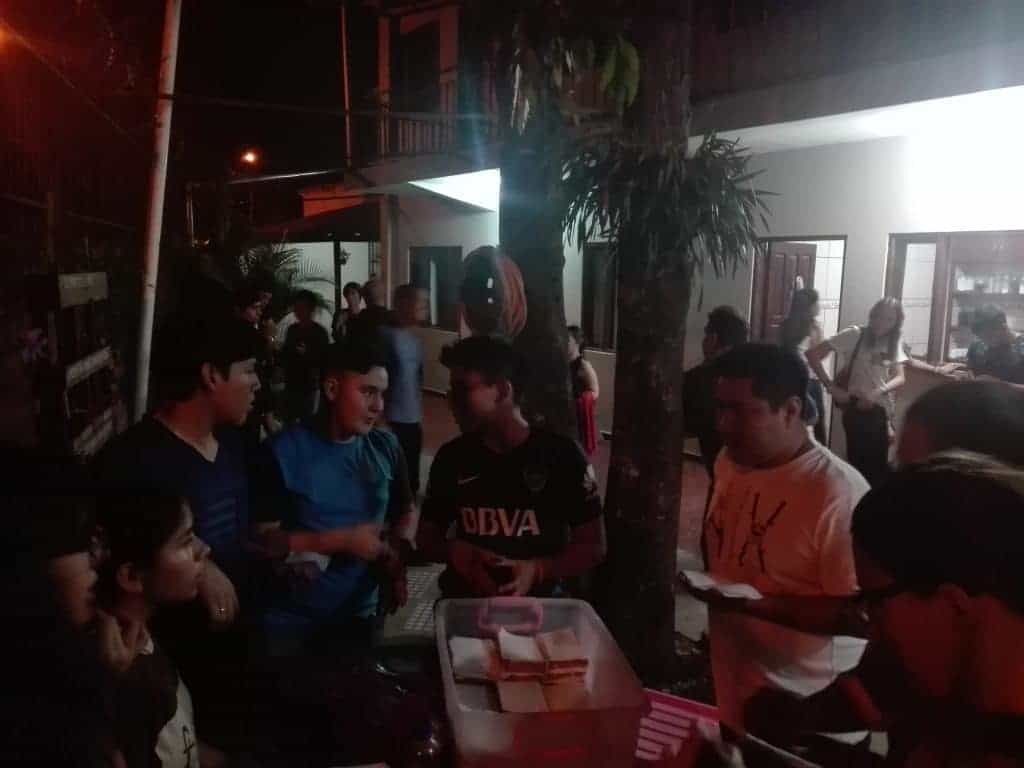
Until recently, this was done in the community dining room, but the neighbors prevented the sisters doing so. They signed a petition that they don’t want to meet these people in their neighborhood, in fear of robberies and burglaries.
The municipality and the diocese took the neighbors’ side, so the sisters share the food only in front of the door of their community, where people come alone and not in groups as before.
Our room
The nuns offered us accommodation in one of the small rooms in their house.
This same room was accommodated by a mother with two sons and daughter. I’ll write about Patricia in one of the following posts, as well as about some other people with shocking, but also inspiring life stories.
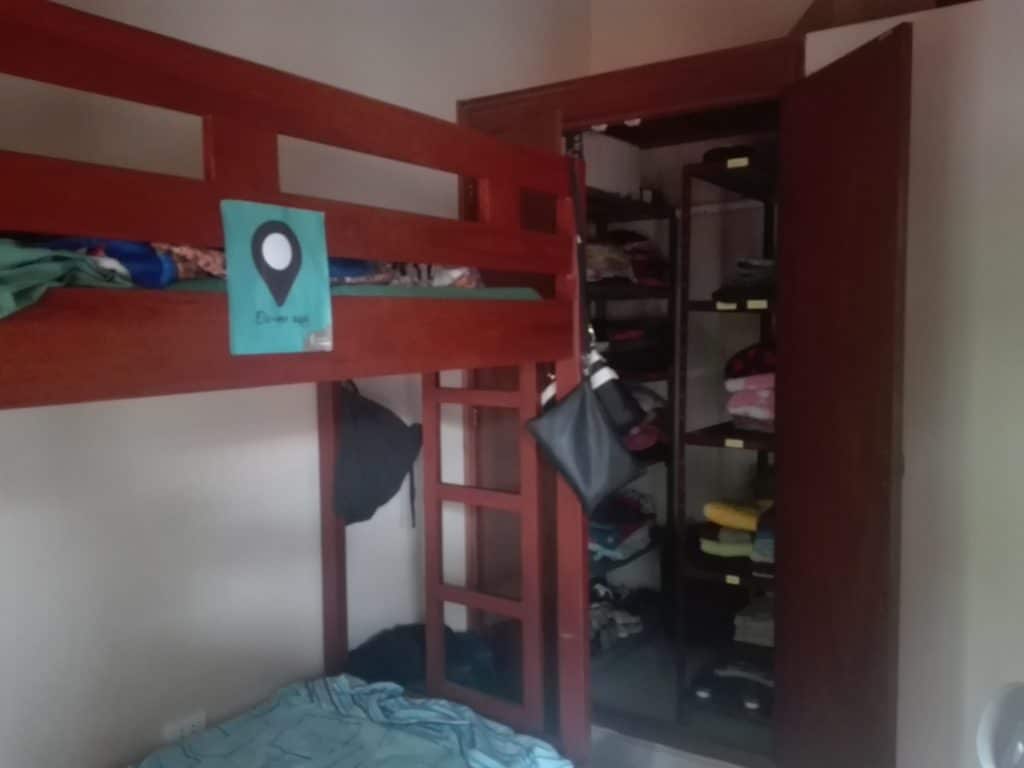
The only closet in our room is full of clothes for the homeless. The sisters invite those who need help the most into the house. There they can wash, take care of personal hygiene and replace their dirty and torn clothes for new and clean ones.
With Magdalenes
The missionaries don’t stay only in their community.
Every Thursday evening, they go on the streets where they share food and clothes with sons and daughters of the street, as they call them. And now, we are also with them.
There are a few spots in the city they regularly visit.
For example, the street with prostitutes and drug dealers that resembles a street of zombies.
People walk on the street intoxicated and drunk. Prostitutes – sisters call them Magdalenes – are entering and leaving a neglected hotel, drug dealers are exchanging drugs and money, some are holding plastic containers with glue they inhale, many people are lying on the street.
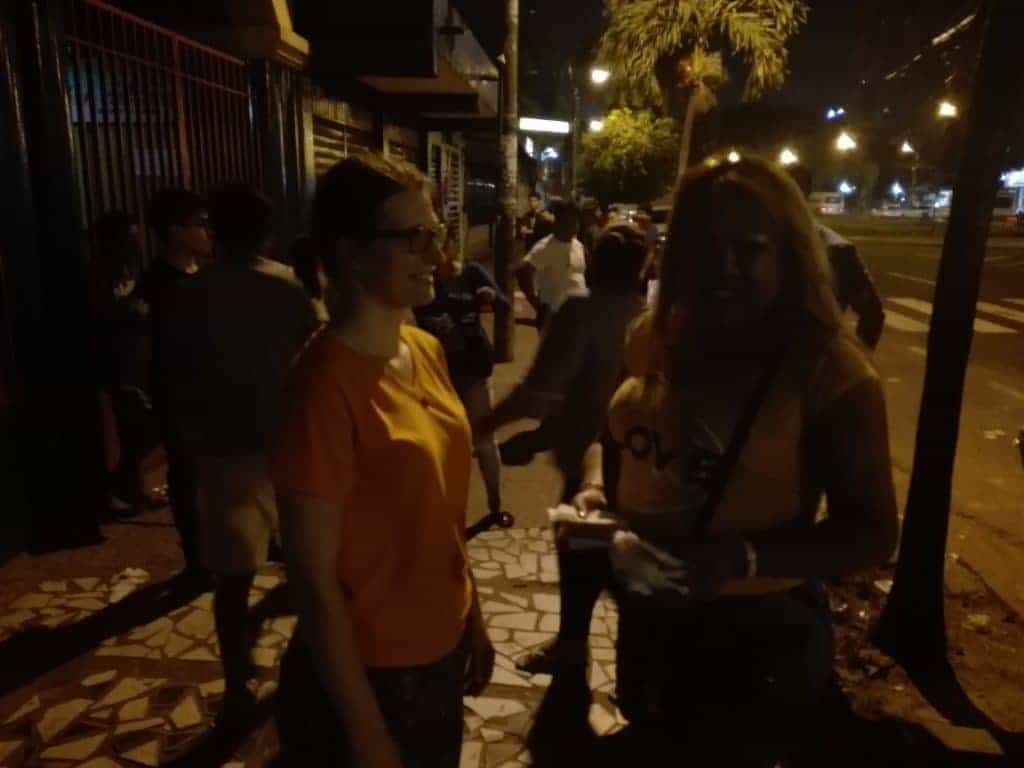
Many people already know the sisters so they are expecting them. For many people, the missionaries and volunteers are the only contact with the ‘normal’ world, who aren’t listening to judgments and criticism, but offer consolation, encouragement and friendly words.
With the people from the channel
The main road through the Santa Cruz city center is separated by a long and wide channel, where the water flows on the rainy days, and of course, waste and all the dirt from the city.
At the crossroads, the channel goes also underground, and that’s where drug addicts, prostitutes and homeless people live, some even with their children, hidden and safe in dirt, smell, between rats and cockroaches.
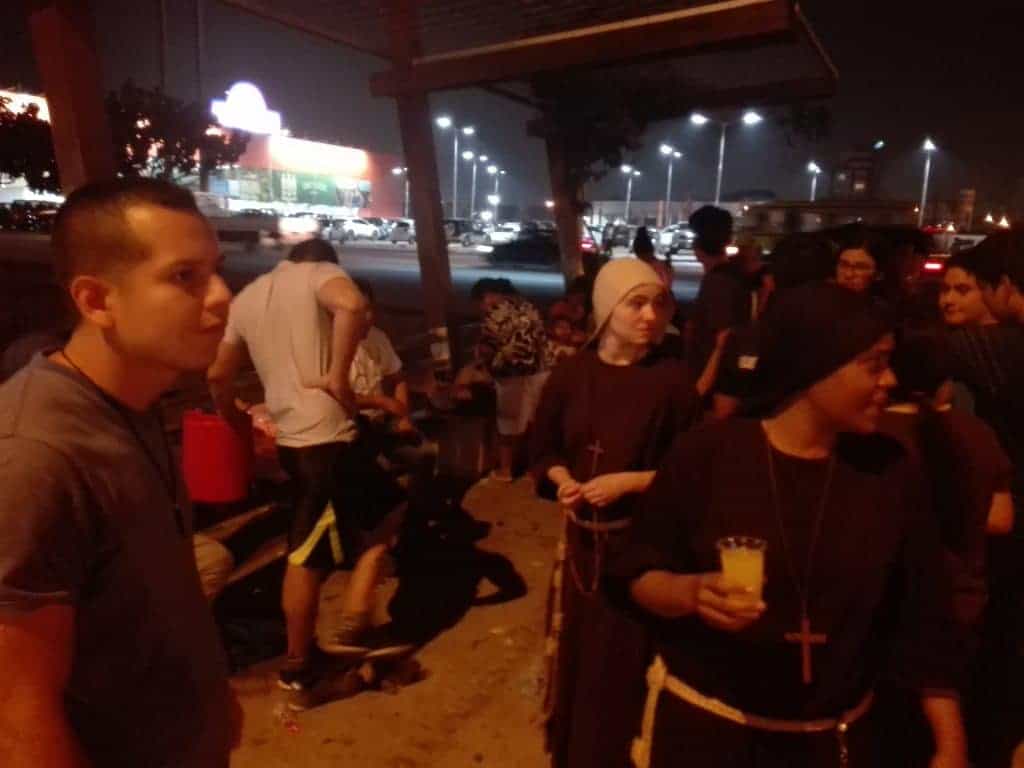
A group of volunteers gathers in the vicinity of such channel and invites people. We will never forget how they came to us. One by one at first, and then in groups.
From that dark, narrow-pitched “tunnel,” the intoxicated men and women came and sat around us, where they received a sandwich and fruit juice.
She would give up her child
I remember some intoxicated woman who was being supported by two other persons to come out of the channel.
Dirty, torn, almost without teeth, but young, aged thirty at most. Pregnant.
That was the face of someone who has given up on life. We were shocked. She sat with us on the bench at the bus station near the intersection, laughed and joked, but spoke incomprehensibly.
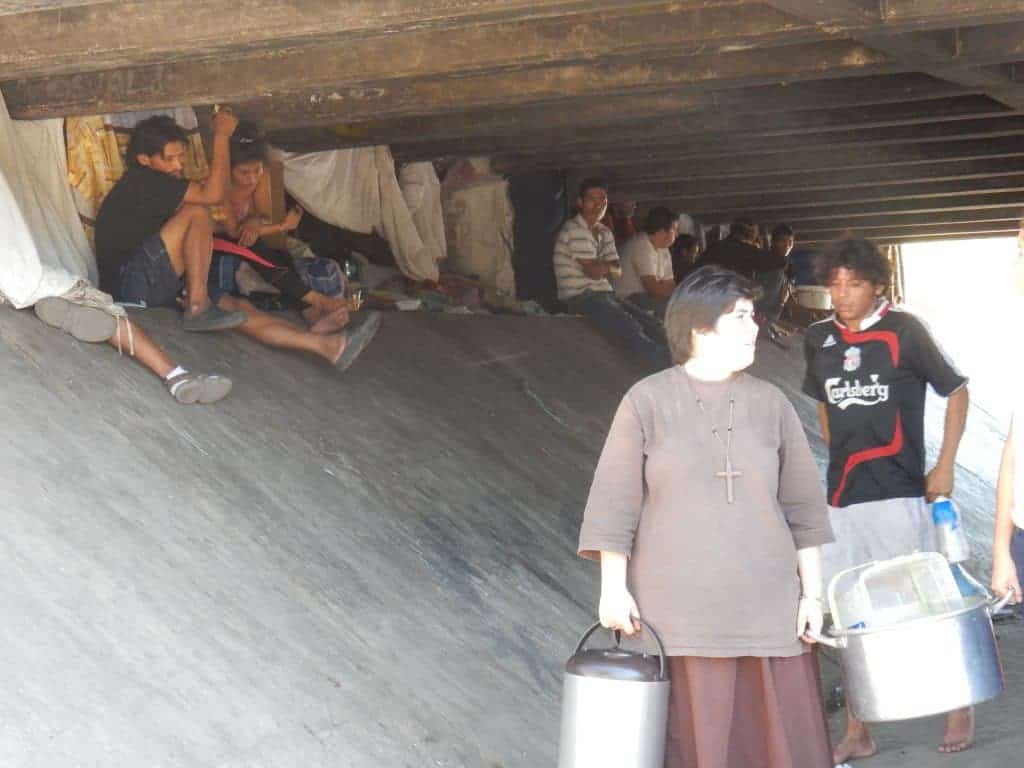
We introduced ourselves and when we told her that we were from Europe, she raised her shirt, showed her belly and said that we can have the baby if we wanted.
It was a joke to her, but to us it was shocking. But who can judge her? We know many stories of these people; their past, difficult childhood, poor education, inaccessible society and lack of social help from the state, all of this can lead a person into a channel, into the darkness from which they often never return.
Light that lights up in the dark
But the missionaries and young volunteers never give up on them. They go there, they invite them out of the darkness, give them a hand, and talk to them.
Before they leave, they always stand in a circle, hold hands and pray with them: this is the light that shines in their dark, the possibility of seeing hope and choosing to change.

With the poor in Costanera
Every Saturday morning, sisters and volunteers go to Costanera (Black Coast), right on the edge of Santa Cruz. It’s a poor shack settlement, with about 300 people.
Many homeless people, poor people and the elderly, for whom the state doesn’t provide much, made modest illegal accommodations in this remote place: wooden shacks, improvised cottages, sometimes covered only with cardboard and plastic. Some go to work, but many don’t have a job and live in poverty.
Hungry children
When the sisters first came to Costanera, they didn’t know exactly how many people actually needed food and help in this place. They prepared lunch for fifty people, but they were astonished when more than 200 hungry children stood in front of their pots and pans.

In Costanera, Saturday morning is a time of joy, laughter, dance and singing. Some of the young volunteers bring guitars with them, and the party lasts for at least two or three hours, until the hungry children stand in line with their plates in their hands.
With young prisoners
Every Monday they visit a prison for adolescents between the ages of 14 and 18. About 150 offenders live in ten houses, surrounded by a wire fence and a guard tower.
Many of these boys committed serious crimes, including manslaughter, but most of them are in prison for drug trafficking, robbery, and theft.
Sisters began to attend the prison upon the invitation of the management as the relationships between the young people were fragile, there was a lot of violence, disrespect and irresponsible behavior.
Bright examples and testimonials
Regular visits of the missionaries and young volunteers have really brightened the atmosphere in prison.
The incarcerated juveniles have the opportunity to get in touch with their peers ‘from the outside’, talk about personal distress and find someone who would listen to them.
Moreover, each time they also hear the testimonies of people who used to be in their place either on the street or in prison, of former drug addicts, gang members and mafia groups, drug dealers…
They tell them about how at one point in their lives they realized they’re at dead-end and walked out of that situation and started a new life.
They want to tell the young juveniles that it’s not too late for them, that they are not doomed and that life can also be nice – without drugs, alcohol and crime.
Great Christmas celebration
At Operando we want to help these missionaries. When we asked sister Letizia, who is the head of the community, for what purpose we could raise money, she described her big wish for this year’s Christmas.
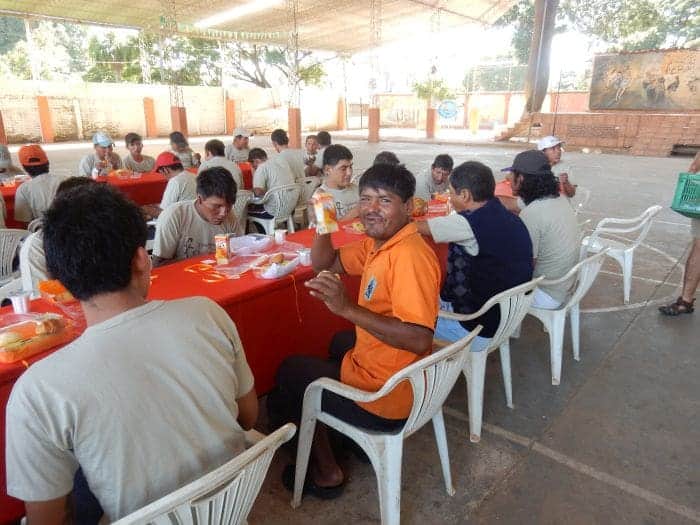
The sisters want to rent a big hall in the city center and organize Christmas celebration for the homeless, their children and all other people who are poor and need help and are involved in the missionary activities.
The sisters want to prepare a real Christmas dinner, buy gifts for the homeless (new clothes and school supplies for children) and celebrate the birth of Jesus together with them, as celebrated by other people in Bolivia and around the world.
